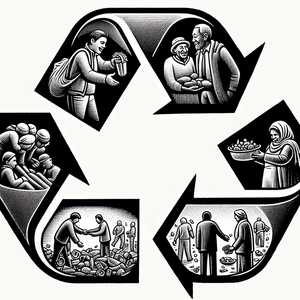The Emotional Toll of Caring: Finding Balance and Support

The emotional toll of caregiving is multifaceted. According to the National Alliance for Caregiving, caregivers frequently report feelings of isolation, anxiety, and depression. The constant demands of caregiving can lead to caregiver burnout—a state characterized by physical, emotional, and mental exhaustion. Caregivers may grapple with a sense of guilt, believing they should be doing more for their loved ones, which can exacerbate feelings of stress and overwhelm. For instance, a study published in the Journal of the American Geriatrics Society found that more than 40% of caregivers experience high levels of stress, which can lead to health issues such as heart disease and weakened immune systems. This statistic underscores the importance of recognizing and addressing the emotional strain of caregiving.
The Importance of Self-Care
To combat the negative effects of caregiving, self-care is crucial. Taking time to recharge is not merely a luxury but a necessity for caregivers to maintain their health and effectiveness. Here are some effective self-care strategies: 1. Set Boundaries: Learning to set limits on time and energy is vital for caregivers. This may involve saying no to additional responsibilities or delegating tasks to family members or friends. 2. Engage in Regular Physical Activity: Exercise is a proven mood booster and stress reducer. Simple activities, like going for a daily walk, can significantly improve emotional health. 3. Prioritize Sleep: Adequate rest is essential for mental clarity and emotional resilience. Establishing a consistent sleep routine can help caregivers remain well-rested and better equipped to handle their responsibilities. 4. Practice Mindfulness or Meditation: Mindfulness techniques can assist caregivers in managing stress and fostering emotional well-being. Numerous free resources and apps are available to guide individuals in these practices. 5. Seek Professional Help: Counseling or therapy can provide caregivers with a safe space to express their feelings and develop effective coping strategies. Support from mental health professionals can prove invaluable in navigating the emotional landscape of caregiving.
Finding Support in Community
Connecting with others who understand the challenges of caregiving can be incredibly beneficial. Support groups, whether in-person or online, create a sense of community and belonging. These groups offer caregivers the opportunity to share experiences, exchange advice, and provide emotional support to one another. Organizations like the Family Caregiver Alliance and local chapters of the Alzheimer’s Association often host support groups tailored to specific needs. For example, caregivers of individuals with Alzheimer's can find solace in groups that address the unique challenges they face, fostering a supportive environment that encourages sharing and healing.
Utilizing Available Resources
Numerous resources can aid caregivers in managing their emotional health and well-being. Here are a few notable examples: - Respite Care Services: These services provide temporary relief for caregivers, allowing them a break to recharge. Respite care can often be arranged through local agencies or national organizations like the National Respite Network, giving caregivers the opportunity to focus on their own needs. - Hotlines and Online Support: Many organizations offer hotlines staffed by trained professionals who can provide immediate support and guidance for stressed caregivers. Websites such as Caregiver Action Network provide extensive information and access to online forums where caregivers can seek advice and share experiences. - Workshops and Training: Educational programs aimed at caregivers can equip them with essential skills to handle daily challenges more effectively, including stress management techniques and communication skills. These workshops often cover a range of topics, from financial management to legal considerations in caregiving.
Caring for a loved one is a noble and selfless act, but it is essential for caregivers to recognize and address their emotional needs. By prioritizing self-care, seeking support from community resources, and utilizing available assistance, caregivers can find a balance that allows them to continue their vital role without sacrificing their well-being. In doing so, they not only enhance their quality of life but also provide better care for those they love, creating a more sustainable caregiving experience for both parties. Ultimately, caregivers must remember that they are not alone in their struggles. By reaching out for help and taking proactive steps to care for themselves, they can foster resilience and ensure that the emotional toll of caregiving does not overshadow the love and commitment that drives their actions. This balance is essential—not just for the caregiver’s health, but for the well-being of those they care for as well.
Caregiver Support Coordinator
Nonprofit organizations, healthcare facilities, and community health agencies
Responsibilities
Develop and implement support programs for family caregivers, focusing on mental health resources and respite care options.
Facilitate workshops and training sessions on stress management and self-care techniques for caregivers.
Serve as a liaison between caregivers and community resources, ensuring access to necessary services.
Required Skills
Strong communication and interpersonal skills to connect with caregivers.
Knowledge of mental health resources and caregiver support services.
Experience in program development or community outreach.
Geriatric Care Manager
Aging services organizations, hospitals, and private practice
Responsibilities
Assess the needs of elderly clients and their families to create comprehensive care plans that address health, emotional, and social needs.
Coordinate services such as medical appointments, home health care, and community resources while monitoring the effectiveness of care.
Advocate for clients' rights and needs within healthcare and social service systems.
Required Skills
Background in nursing, social work, or gerontology.
Strong organizational and advocacy skills to navigate complex care systems.
Empathy and understanding of the emotional challenges faced by elderly clients and their caregivers.
Mental Health Counselor for Caregivers
Counseling centers, hospitals, and community health organizations
Responsibilities
Provide individual or group counseling sessions specifically tailored to the emotional challenges faced by caregivers.
Develop coping strategies and self-care plans to help caregivers manage stress and prevent burnout.
Conduct workshops on mental wellness and emotional resilience for caregiver support groups.
Required Skills
Professional licensure in counseling or psychology.
Experience working with caregivers or in the field of geriatric mental health.
Strong listening skills and the ability to create a safe, supportive environment for clients.
Respite Care Assistant
Home care agencies, respite care services, and nursing homes
Responsibilities
Provide temporary relief to primary caregivers by assisting with daily care tasks for individuals with disabilities or chronic illnesses.
Engage clients in activities that promote social interaction and emotional wellbeing, allowing caregivers time to rest.
Maintain records of care provided and report any changes in client health or behavior to the primary caregiver or healthcare provider.
Required Skills
Experience in personal care or caregiving roles, preferably with a focus on the elderly or disabled.
Ability to handle emergency situations calmly and effectively.
Compassionate nature and strong interpersonal skills.
Community Outreach Specialist for Caregiver Programs
Nonprofit organizations, government health departments, and community service agencies
Responsibilities
Promote caregiver support programs and services through community outreach, education, and engagement initiatives.
Collaborate with local organizations to develop resources and events aimed at supporting the caregiver community.
Collect feedback from caregivers and community members to improve program offerings and outreach strategies.
Required Skills
Experience in community organizing or public relations.
Excellent presentation and networking skills to engage with diverse audiences.
Understanding of the unique challenges faced by caregivers and the ability to convey this to stakeholders.


